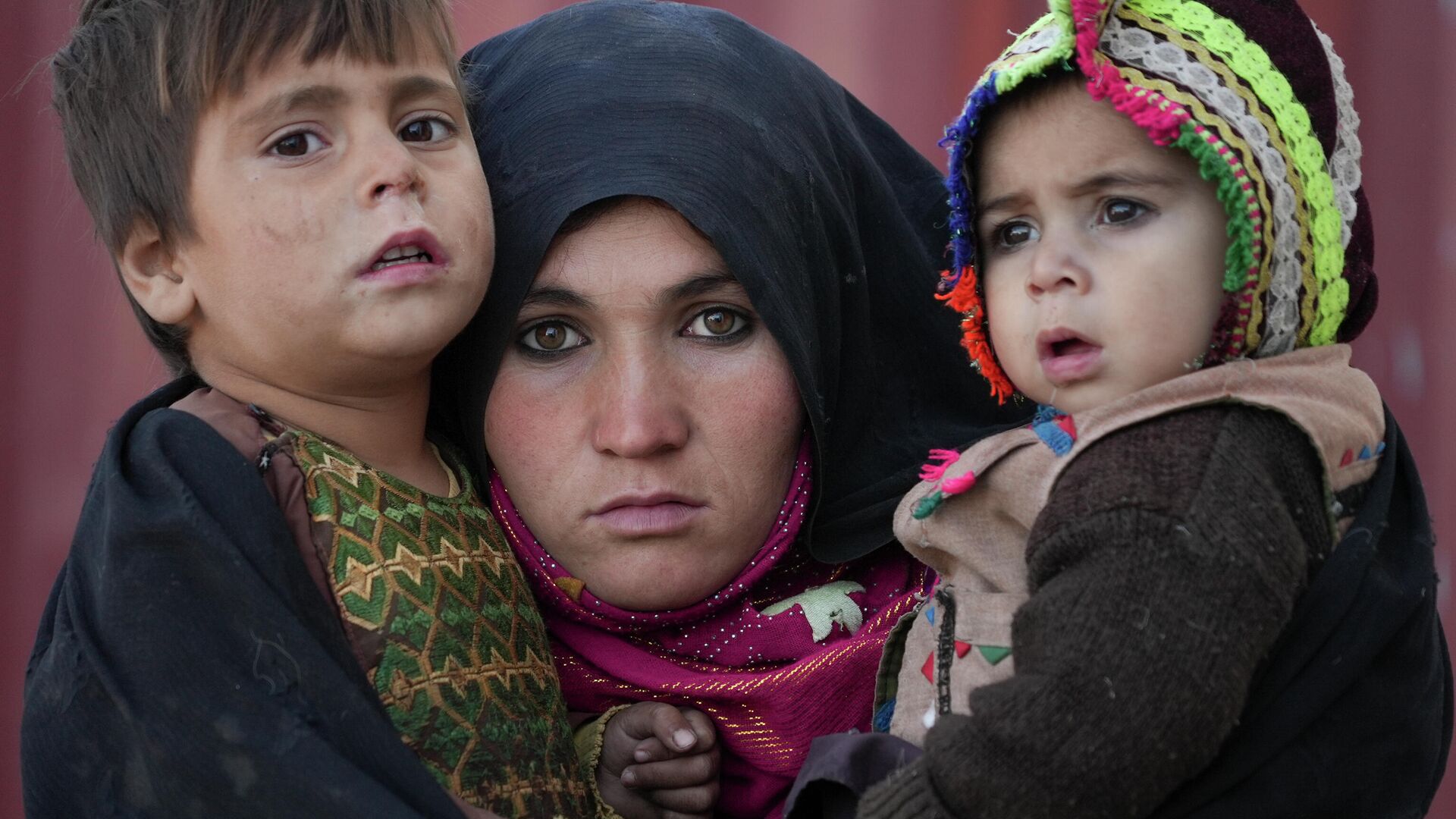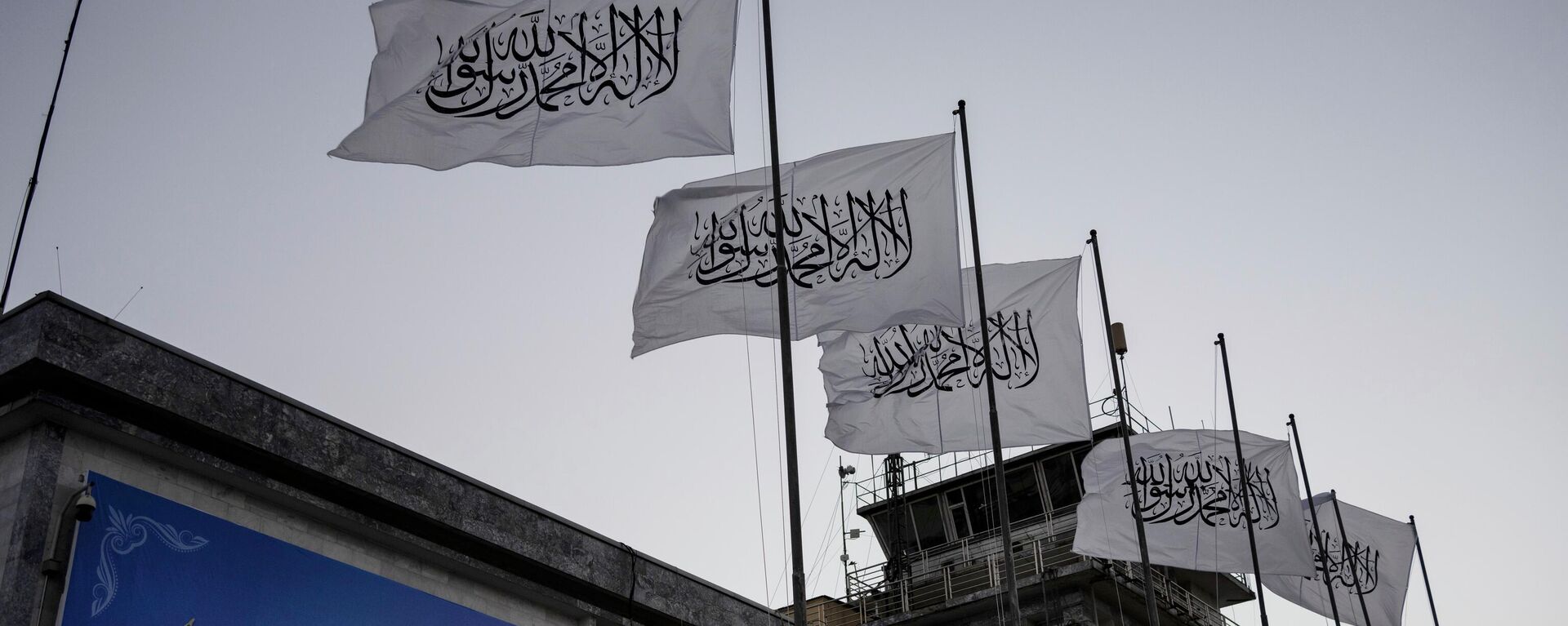https://sputnikglobe.com/20220625/taliban-calls-on-west-to-end-sanctions-unfreeze-assets-in-wake-of-deadly-quake-1096662382.html
Taliban Calls on West to End Sanctions, Unfreeze Assets in Wake of Deadly Quake
Taliban Calls on West to End Sanctions, Unfreeze Assets in Wake of Deadly Quake
Sputnik International
On Wednesday, a 6.1 magnitude earthquake hit the Pakita province of Afghanistan. The country is no stranger to earthquakes, sitting along the Chaman fault, but... 25.06.2022, Sputnik International
2022-06-25T21:26+0000
2022-06-25T21:26+0000
2022-06-26T10:07+0000
afghan government
taliban
america
earthquake
humanitarian aid
https://cdn1.img.sputnikglobe.com/img/07e6/03/15/1094065987_0:0:3065:1725_1920x0_80_0_0_d339e382d2f5648e991e0a89456babcf.jpg
The Taliban* administration is calling on governments to stop their sanctions on the fledgling government and release the billions of dollars in assets seized by the United States earlier this year.The request comes after a 6.1 magnitude earthquake hit the eastern side of the country on Wednesday, leaving at least 1,000 people dead, an additional 2,000 injured and over 10,000 homes damaged or destroyed.Humanitarian aid has been promised by multiple countries and some has already arrived. But the sanctions and frozen assets are preventing Afghanistan from long-term solutions and infrastructure development that could lessen the impact of future earthquakes and help it deal with a humanitarian crisis that was ongoing before the earthquake.Western governments say they want concessions from the Taliban on human rights before lowering sanctions or unfreezing their assets. In March, the Taliban prevented high schools for girls from opening in the country.However, Balkhi says that saving the lives of Afghans should be the priority and claims that the sanctions are hypocritical, pointing to the recent overturn of Roe v. Wade in the United States.“Is this rule universal? Because the United States just passed an anti-abortion law," Balkhi claimed, though the United States did not pass such a law. A recent Supreme Court ruling shot down the landmark case, ending abortion protections from the federal government and enabling anti-abortion laws in more than 20 states.In February, the Biden administration announced that $7 billion in Afghanistan assets stored in the United States would be seized. Three and a half billion dollars were set aside for victims of 9/11 and their families, while the other half was earmarked for unspecified “humanitarian aid” in Afghanistan. The move received condemnation from Afghan officials, including former Afghan president Hamid Karzai. Mark Weisbrot, the co-director for the Center of Economic and Policy Research, explained to The Intercept that at the time, the decision hurt the country in more ways than the dollar amount alone.“If a country doesn’t have reserves, and it doesn’t have a functioning central bank, then there’s no amount of aid that’s going to come anywhere close to making up for that,” Weisbrot explained.*A group under United Nations sanctions for terrorist activities.
https://sputnikglobe.com/20220621/report-us-rejecting-over-90-of-afghans-seeking-asylum-from-taliban-on-humanitarian-grounds-1096502879.html
Sputnik International
feedback@sputniknews.com
+74956456601
MIA „Rossiya Segodnya“
2022
News
en_EN
Sputnik International
feedback@sputniknews.com
+74956456601
MIA „Rossiya Segodnya“
Sputnik International
feedback@sputniknews.com
+74956456601
MIA „Rossiya Segodnya“
afghan government, taliban, america, earthquake, humanitarian aid
afghan government, taliban, america, earthquake, humanitarian aid
Taliban Calls on West to End Sanctions, Unfreeze Assets in Wake of Deadly Quake
21:26 GMT 25.06.2022 (Updated: 10:07 GMT 26.06.2022) On Wednesday, a 6.1 magnitude earthquake hit the Pakita province of Afghanistan. The country is no stranger to earthquakes, sitting along the Chaman fault, but the quake was the deadliest the country has seen in over two decades.
The Taliban* administration is calling on governments to stop their sanctions on the fledgling government and release the billions of dollars in assets seized by the United States earlier this year.
The request comes after a 6.1 magnitude earthquake hit the eastern side of the country on Wednesday, leaving at least 1,000 people dead, an additional 2,000 injured and over 10,000 homes damaged or destroyed.
Abdul Qahar Balkhi, Afghanistan’s foreign affairs ministry spokesperson, told Reuters, “The Islamic Emirate is asking the world to give the Afghans their most basic right, which is their right to life and that is through lifting the sanctions and unfreezing our assets and also giving assistance.”
Humanitarian aid has been promised by multiple countries and some has already arrived. But the sanctions and frozen assets are preventing Afghanistan from long-term solutions and infrastructure development that could lessen the impact of future earthquakes and help it deal with a humanitarian crisis that was ongoing before the earthquake.
Western governments say they want concessions from the Taliban on human rights before lowering sanctions or unfreezing their assets. In March, the Taliban prevented high schools for girls from opening in the country.
However, Balkhi says that saving the lives of Afghans should be the priority and claims that the sanctions are hypocritical, pointing to the recent overturn of Roe v. Wade in the United States.
“Is this rule universal? Because the United States just passed an anti-abortion law," Balkhi claimed, though the United States did not pass such a law. A recent Supreme Court ruling shot down the landmark case, ending abortion protections from the federal government and enabling anti-abortion laws in more than 20 states.
“Sixteen countries in the world have taken away the rights of religious minorities, especially Muslims ... are they also facing sanctions because they are violating rights?,” Balkhi added.
In February, the Biden administration announced that $7 billion in Afghanistan assets stored in the United States would be seized. Three and a half billion dollars were set aside for victims of 9/11 and their families, while the other half was earmarked for unspecified “humanitarian aid” in Afghanistan. The move received condemnation from Afghan officials, including former Afghan
president Hamid Karzai. Mark Weisbrot, the co-director for the Center of Economic and Policy Research, explained to
The Intercept that at the time, the decision hurt the country in more ways than the dollar amount alone.
“If a country doesn’t have reserves, and it doesn’t have a functioning central bank, then there’s no amount of aid that’s going to come anywhere close to making up for that,” Weisbrot explained.
*A group under United Nations sanctions for terrorist activities.


